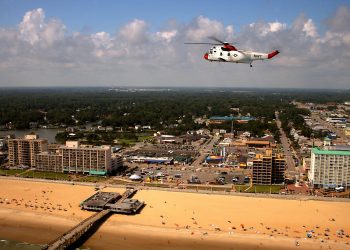 The Virginia Joint Legislative Audit and Review Commission has completed its impact assessment of legislation that could see the state’s first bricks and mortar casinos constructed, projecting annual tax revenue of $262m.
The Virginia Joint Legislative Audit and Review Commission has completed its impact assessment of legislation that could see the state’s first bricks and mortar casinos constructed, projecting annual tax revenue of $262m.However, it added, the lack of problem gambling support in the state must be urgently addressed, whether or not new gambling products and verticals are rolled out.
The study also noted that Virginia could benefit from additional tax revenue of up to $55m from legal sports betting when the market reaches maturity.
A further $84m could come from the launch of online casino gaming. As this would most likely be linked to the construction of land-based facilities, the study noted, sports betting regulations could be passed, implemented and the market launched sooner.
Ultimately the study concluded that casino gambling could have a “positive, but modest” impact on the state’s local economies.
The study was commissioned following the passage of Senate Bill 1126, which was signed into law by Governor Ralph Northam in March this year. The provisions of the bill must then be revisited in the 2020 legislative session before they can be enacted, something that Representative Barry Knight aims to do with House Bill 4, which was pre-filed last week.
It said that under the conditions set out in SB1126, five cities would be eligible to host casinos: Bristol, Danville, Norfolk, Portsmouth and Richmond. The bill states that cities must meet a number of criteria based on unemployment, property tax rates and population decline if they are to allow resort-style venues.
In these five cities, the study estimated that each project would require initial capital expenditure of between $200m and $300m, with the venues to generate around $970m in net revenue, and $262m in gaming tax revenue by 2025. In comparison, it noted, the Virginia Lottery generates $600m per year after prizes are paid out.









